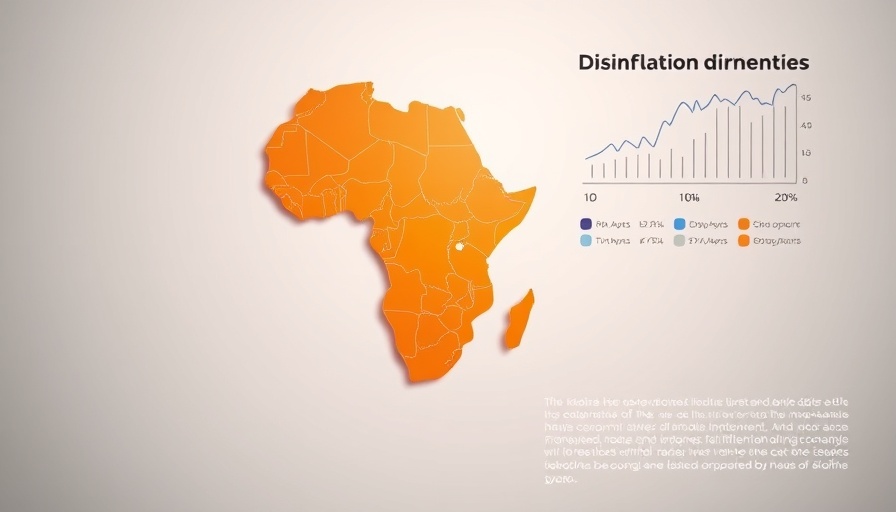
Understanding Composite Business Cycle Indicators
The South African Reserve Bank (SARB) has released its Composite Business Cycle Indicators for July 2025, laying out crucial metrics that reflect the economic landscape. These indicators serve as essential tools for measuring the health of the economy, particularly in relation to inflation, monetary policy, and overall economic growth.
The Role of Monetary Policy in Economic Stability
Monetary policy plays a vital role in stabilizing the economy by managing inflation expectations and interest rates. Under the leadership of Governor Lesetja Kganyago, the SARB focuses on maintaining price stability while aiming for a healthy repo rate that supports both consumers and businesses. By navigating complex financial waters, the SARB's policies aim to ensure financial stability in the face of fluctuating global economic conditions.
Current Inflation Dynamics and Their Impact
Inflation control is one of the primary goals of the SARB. The recent reports indicate a shift in inflationary pressures, driven by external factors, such as currency valuation and commodity prices. Understanding these dynamics helps investors and policymakers make informed decisions regarding monetary interventions and fiscal coordination to mitigate potential risks to economic resilience.
Economic Growth Projections: What’s Next?
With the economic indicators pointing towards a range of outcomes, growth projections for South Africa remain cautiously optimistic. The SARB's current figures suggest potential pathways for economic expansion, contingent upon effective management of inflation and strategic monetary policy implementation. This framework allows for not only stabilization but also sets the stage for long-term economic sustainability.
Financial Stability Mandate and Currency Management
The SARB's commitment to financial stability plays a critical role in safeguarding the rand's value. Through diligent monitoring of foreign exchange reserves and gold reserves, the central bank aims to protect the currency against unforeseen economic shocks. Such measures are essential not just for immediate stability, but also for enhancing investor confidence in South Africa's financial system integrity.
Future Predictions: Navigating the Economic Landscape
As the SARB continues to adjust its monetary policy stance, expectations for the future hinge on diligent economic modeling and analysis. Experts advocate for transparency in monetary policy communication to better manage public expectations and enhance the effectiveness of policy interventions. Given the complexities arising from global economic interdependencies, navigating this landscape requires a well-coordinated approach that includes financial sector oversight and reforms.
To Act or Not: Decisions Ahead for Investors
Investors must consider the implications of the latest economic data when making strategic decisions. As the SARB outlines its economic outlook, understanding the interconnectedness of inflation, interest rates, and financial stability is paramount. This awareness empowers individuals and institutions alike to adjust their portfolios in anticipation of shifts in the market.
Conclusion: Act Now for Informed Economic Decisions
In a rapidly changing economic environment, remaining informed about the latest Composite Business Cycle Indicators is essential for professionals engaging with the financial markets. By closely monitoring SARB's policy decisions, inflation reports, and other relevant indicators, stakeholders can better position themselves to navigate potential challenges and seize opportunities as they arise. Ensure you keep abreast of ongoing economic analyses, as these can significantly affect future forecasts.
 Add Row
Add Row  Add
Add 




Write A Comment